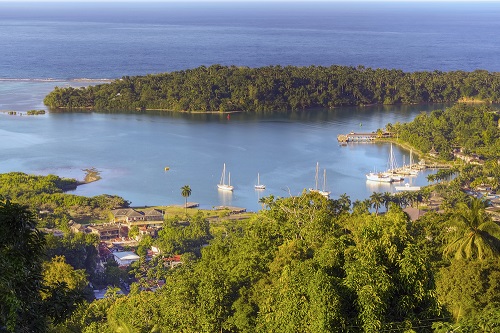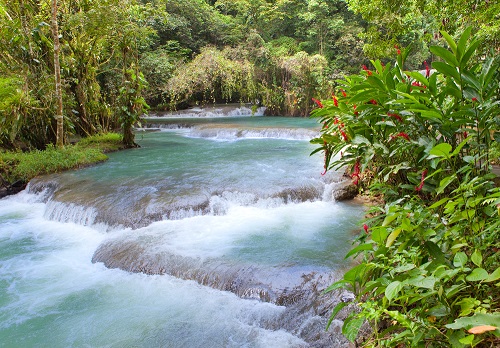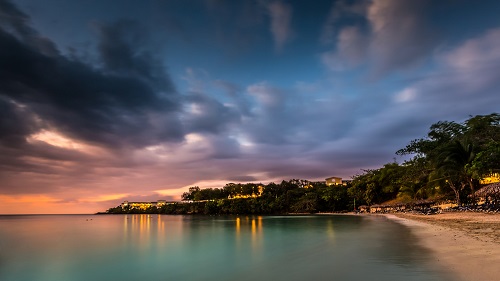In Jamaica, your options around pregnancy will depend on whether you choose maternity care in the public or the private healthcare sector. Be warned that private sector maternity costs in Jamaica can be steep. The Jamaican public sector will cost you considerably less, since maternity care is free at the point of delivery under the national healthcare scheme, but it’s worth taking into account that it does have its limitations. For example, you may experience long waiting times, overcrowding and equipment shortages. We will look at some of your options below.
How to decide on a birth plan
A birth plan is a list of what you would like to have happen during labour and afterwards. It is written so that your doctor knows what your wishes and expectations are.
• Where do you want to give birth?
• Who do you want to have with you (e.g. your partner)?
• What kind of birth do you want (e.g. vaginal birth or a Caesarian)?
• Do you need any birthing aids?
• Do you want pain relief, and if so, what kind?
• What kind of birthing environment would you prefer?
Recent studies have shown that local Jamaican women tend not to access public maternity services, apart from going for the occasional pre-natal visit and for the delivery itself. This seems to be due to a cultural conception that birth is a ‘life event’ and does not need to be medicalised. Although Jamaican healthcare faces some serious challenges, there is a level of public maternity care in place, and the health authorities are trying to encourage people to use it.
Maternity care is developing, as evidenced by the European Union-funded ‘Partnership for the Promotion of Patients’ Rights in Maternal, Neonatal and Infant Health in Jamaica’ project. This aims to increase human rights in patient care and to improve the role and effectiveness of advocacy for maternal and child health.

Jamaican maternity care
In 2015, the maternal mortality ratio on the island was 89 per 100,000 live births, reflecting an increase from 1990 (when it was 79 per 100,000 live births). The neonatal mortality ratio was 11.6 per 1,000 live births in 2015, compared to 17 per 1,000 in 2000.
Most expats who are resident in Jamaica opt for private health cover. However, some hospitals ask for upfront payments for maternity services, which you can then get reimbursed by your insurance provider. This can be between JMD$50,000 (US$360) and JMD$300,000 (US$2180), and this has recently come to the attention of the Jamaican press. Mother and baby groups have suggested that this needs to be addressed, as the upfront costs can be too steep for local mothers-to-be.
The Women’s Resource and Outreach Centre, which is co-implementing the EU-funded project with the UWI DCHP, says that there should be a national conversation on the issue, especially given that young people, who pay the most contributions into the national insurance system, are the demographic most likely to give birth – yet they are being penalised by these heavy costs.
Experts suggest that, in order to prepare financially for your pregnancy, you should make sure that you have an insurance plan providing pregnancy complication and newborn coverage. It should have clauses for coverage of emergency C-sections, ectopic pregnancies, stillbirths, and other complications associated with pregnancy.
Your first port of call, if you think you may be pregnant, is your GP, who will arrange a series of appointments, including blood tests, scans and ultrasounds, for the course of your pregnancy. You will then need to choose a maternity unit.
The University Hospital of the West Indies (UHWI) is the main private hospital with an antenatal clinic. UHWI has two separate clinics, one public and one private. Andrews Memorial Hospital, in Kingston, is owned by the Seventh Day Adventists and also offers maternity care. You will need to register in one of these clinics between weeks eight and 16 of your pregnancy.
The total public clinic cost will be JMD$33,500/US$240 (JMD$27,000 is for antenatal visits throughout the pregnancy, and the remaining JMD$6,500 is for the blood tests). You will need to pay extra for ultrasound examinations and any other tests. While the public clinic operates only on specific mornings of the week, the private clinic – at additional cost – can be used at other times.
For a vaginal delivery, the deposit is now JMD$30,000 (US$218), while the deposit for a C-section is $120,000 (US$870). This does not include charges incurred while staying at the hospital or costs associated with the care of the newborn baby, and if you want your own obstetrician to deliver the baby, you will have to pay more.
Check with your hospital of choice to find out whether you need to pay a deposit when making an appointment for your delivery date, and do not be afraid to ask for costs. Andrews Memorial Hospital (AMH), for example, has a business office that can answer all your questions.

A deposit of JMD$55,000 (US$400) will be required at AMH if you anticipate a normal delivery, and a deposit of JMD$230,000 (US$1672) is required for a C-section. If you want a midwife to deliver your baby, you will need to pay an additional JMD$15,000 (US$109).
Private rooms at AMH cost JMD$14,000 (US$100) per day, or you can pay JMD$11,500 (US$83) per day for a semi-private room, where you share your room and bathroom with one other patient.
At the Nuttall Memorial Hospital, you will need to pay a deposit (payable three months before your scheduled due date) of JMD$70,000 (US$509) for a vaginal delivery and JMD$140,000 (US$1018) for a C-section.
The full cost of a vaginal delivery is estimated at JMD$125,000 (US$909) and for a C-section is estimated at JMD$270,000 (US$1963) at Hargreaves Memorial Hospital in Mandeville, which requires deposits of JMD$75,000 (US$545) and JMD$160,000 (US$1163).
If you choose to give birth in the public sector, then this will be free at the point of delivery, with the exception of a JMD$200 (US$1 to U$2) registration fee for your baby. Jamaican public hospitals do not have a stellar reputation, but some expats have reported adequate standards of care at public institutions such as the Spanish Town Hospital.
Some expats have noted that appointment times in the private sector can be as long as in the public healthcare system. Private healthcare in Jamaica may not be up to the standard that you have come to expect in more developed countries.
Given all this, you may want to explore the option of returning to your home nation to give birth.
If you are working, you will be entitled to eight weeks of paid maternity leave and an additional four weeks of unpaid leave. There are no statutory requirements for paternity leave.
Will the baby be a Jamaican citizen?
Your child will only be a Jamaican citizen if one of their parents is Jamaican.

